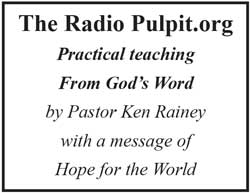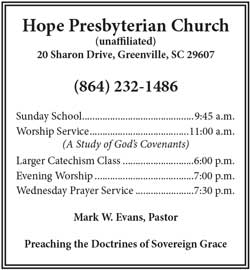EXPORT, Penn. -- Evangelical Protestant donors under age 40 are extremely different from their older counterparts – and especially when compared with evangelical donors 70 and older.
The findings are detailed in The Generation Gap: Evangelical Giving Preferences. The study of over 1,000 American evangelical Protestants was released today by Grey Matter Research and Infinity Concepts.
Fifty-eight percent of evangelical Protestants give money to charities or ministries outside of their church. These donors were asked their preferences in eight different areas regarding giving. In every one of those eight areas, preferences vary substantially by age.
Overall, evangelicals favor the following:
- Giving domestically more than overseas (46% to 27%, with the remaining 27% expressing no preference)
- Trusting an organization until it proves unworthy of their trust over doubting an organization until it proves it is trustworthy (48% to 33%)
- Supporting organizations they already know rather than learning about new organizations (58% to 28%)
- Supporting a small number of causes over a wide variety (58%to 31%)
- Supporting a small number of organizations over a wide variety (62% to 27%)
- Doing research on an organization over giving "when it feels right" (53% to 33%)
- Doing advance planning regarding their giving over donating "spur of the moment" (47% to 34%)
- In giving locally versus beyond their local area, preferences are split (37% to 36%)
However, the study found that younger donors usually see things very differently. For instance, they prefer overseas over domestic, want to spread their money around to more organizations and causes, and like to learn about new organizations more than older donors.
Mark Dreistadt, founder and president of Infinity Concepts, summarizes younger evangelical donors as unique compared to other age groups. "Younger donors have a much more international focus. They seek variety in their giving. They're less trusting but do less planning or research. Unlike older donors, younger donors are a mix of perspectives rather than a strong common voice. Not only that, but they feel less strongly about their perspectives than do older donors."
Ron Sellers, president of Grey Matter Research, notes older people are still the core donors for many organizations. But, looking toward the future, many ministries and charities are making a strong push to reach younger donors. "What leaders need to realize is that they can't effectively reach the 35-year-old donor with the same strategy they used to reach their 65-year-old donors," Sellers explains.
The report states it's unknown whether younger donors will change their perspectives or carry some/all of these unique perspectives with them as they age into being core donors for non-profits. But Dreistadt and Sellers both say if younger donors remain consistent in their preferences it may mean the landscape becomes quite different for organizations.
"Organizations may need to provide more variety in programs and messaging in order to retain these donors," Sellers says. "They may find it harder to attract people who value variety to monthly donor programs or long-term relationships, but there may be more opportunities for short-term growth. Non-profits and ministries may need to focus more on building trust rather than assuming it already exists. Marketing and messaging may need to have a more emotional focus for people who give spur of the moment."
Dreistadt adds, "In short, if younger donors stay consistent with their current preferences, the fundraising landscape may be considerably different in the future."CLICK HERE FOR THE FULL REPORT


















